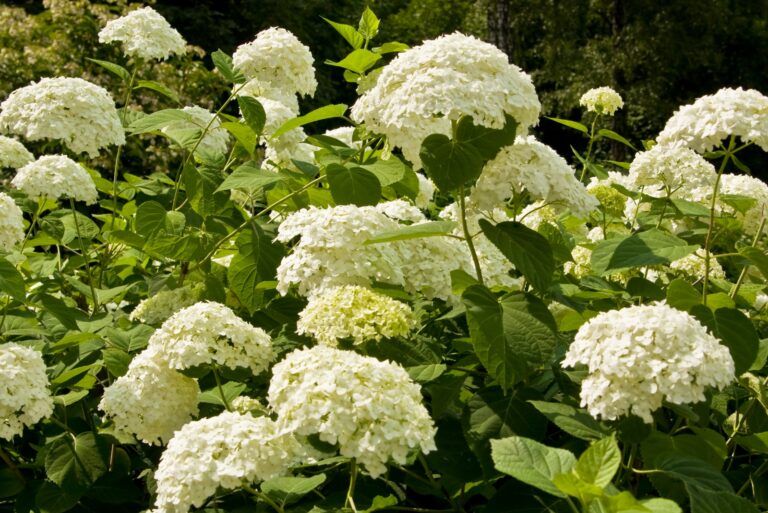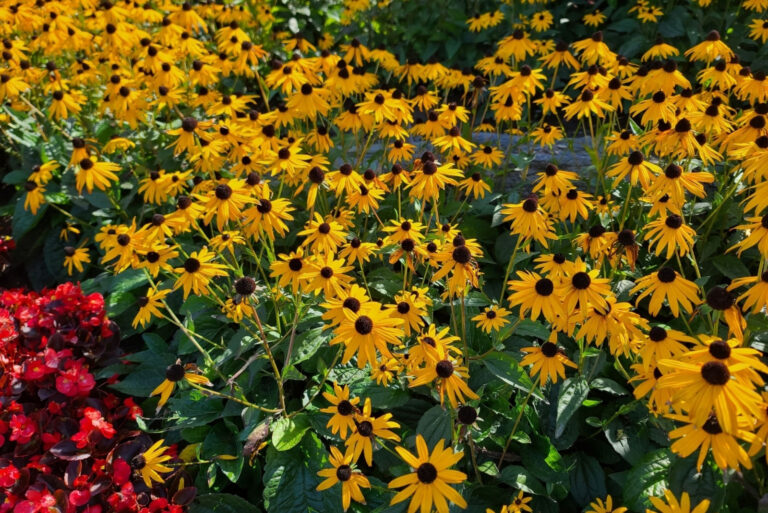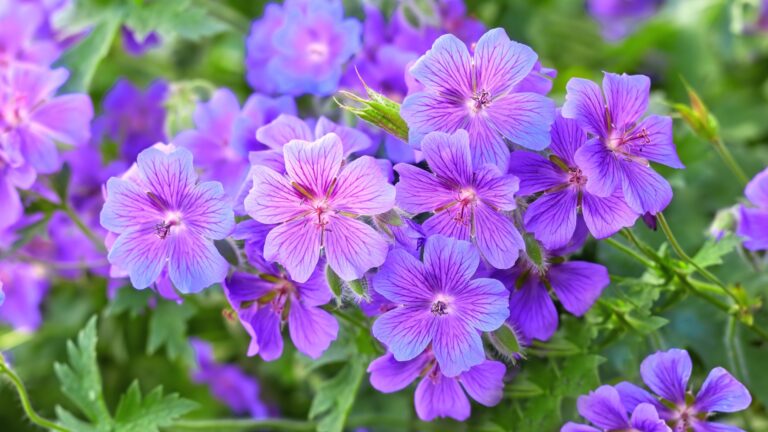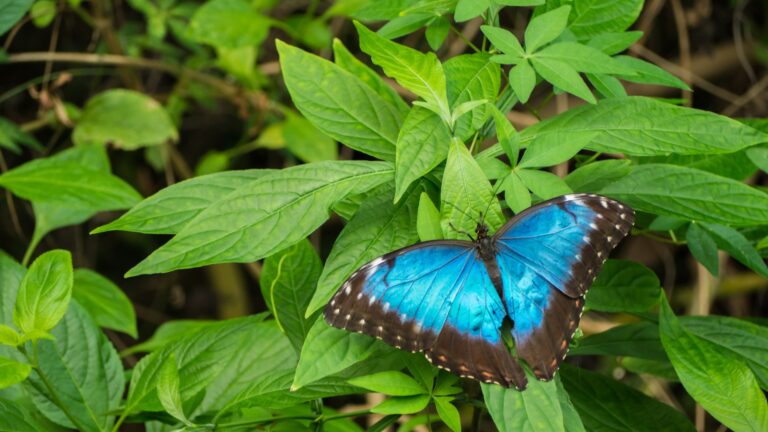10 Ways To Grow Healthy Crops Without Using Pesticides (And Natural Alternatives To Try)

Growing food without pesticides sounded tricky at first—until I found out how many natural tricks actually work. Over the years, I’ve tried everything from companion planting to spicy sprays, and I’m always surprised by how effective the simple stuff can be.
It feels good knowing my garden’s safer for bees, pets, and everyone snacking on cherry tomatoes straight from the vine. Plus, it’s way more satisfying doing it the old-school way.
Here are some of the best methods that have helped me grow strong, healthy crops—no chemicals needed.
1. Companion Planting
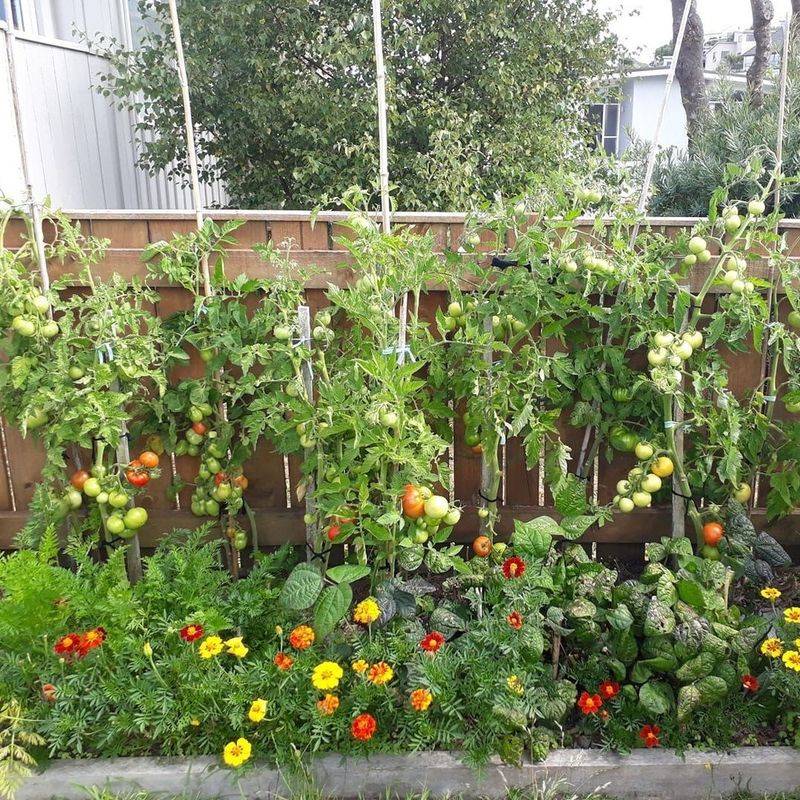
Plants can be natural bodyguards for each other when paired strategically. Marigolds repel nematodes, while basil keeps mosquitoes and flies away from tomatoes. Nasturtiums act as trap crops, attracting aphids away from your vegetables.
Try planting aromatic herbs like rosemary and sage throughout your garden. They confuse pests with their strong scents while attracting beneficial insects that hunt garden pests. This ancient farming technique mimics natural ecosystems where diverse plants support each other.
2. Crop Rotation
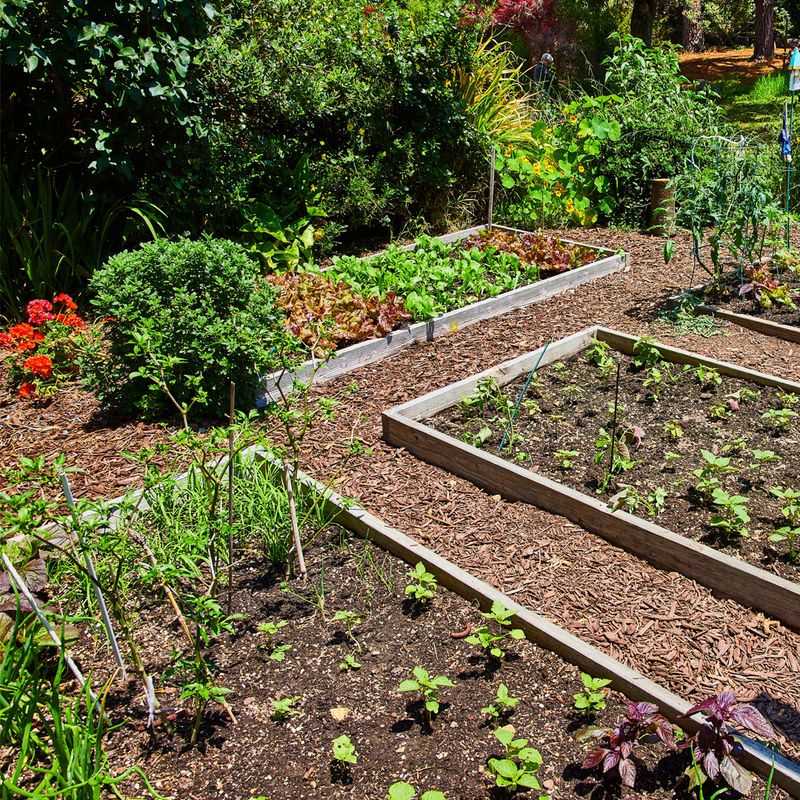
Switching what you grow in each spot every season outsmart pests that like to settle in. When you move crops around, insects can’t find their favorite meals in the same place. Plus, different plants use different nutrients from the soil.
Keep a garden journal to track what grows where each year. Divide your veggies into families (like nightshades, legumes, and brassicas) and never plant the same family in the same spot two years in a row. This simple planning breaks pest cycles naturally.
3. Beneficial Insects
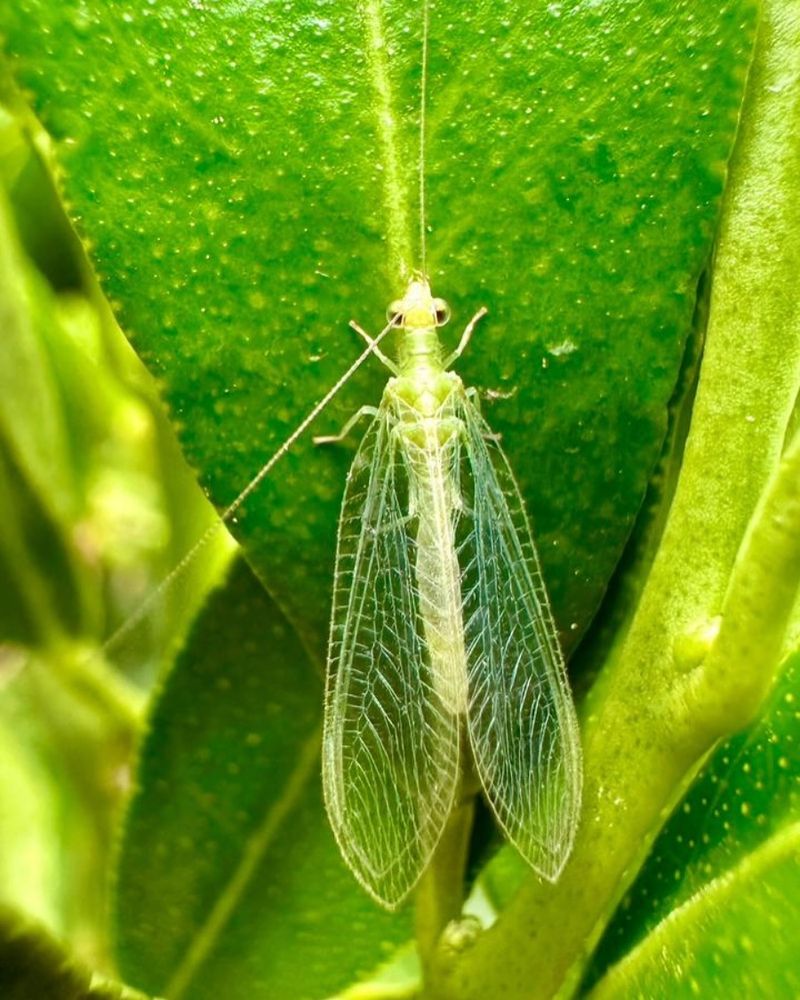
Not all bugs are bad! Ladybugs devour aphids, while lacewings and praying mantises hunt many common garden pests. These helpful creatures act as a natural pest control squad for your garden.
Create insect hotels with hollow stems and small wooden boxes to attract these garden allies. Plant flowers like sweet alyssum and cosmos that provide nectar for beneficial insects. Even a small water source helps these helpers thrive and stick around to protect your crops.
4. Physical Barriers

Sometimes the simplest solutions work best! Row covers made of lightweight fabric let in sun and water while keeping pests away from tender plants. Copper tape creates a barrier slugs and snails won’t cross because it gives them a mild electric shock.
Try installing collars around young plants to prevent cutworms from chomping stems. Floating row covers work wonders for keeping cabbage moths off your brassicas. These barriers are especially useful during the vulnerable seedling stage when plants need extra protection.
5. Healthy Soil Practices
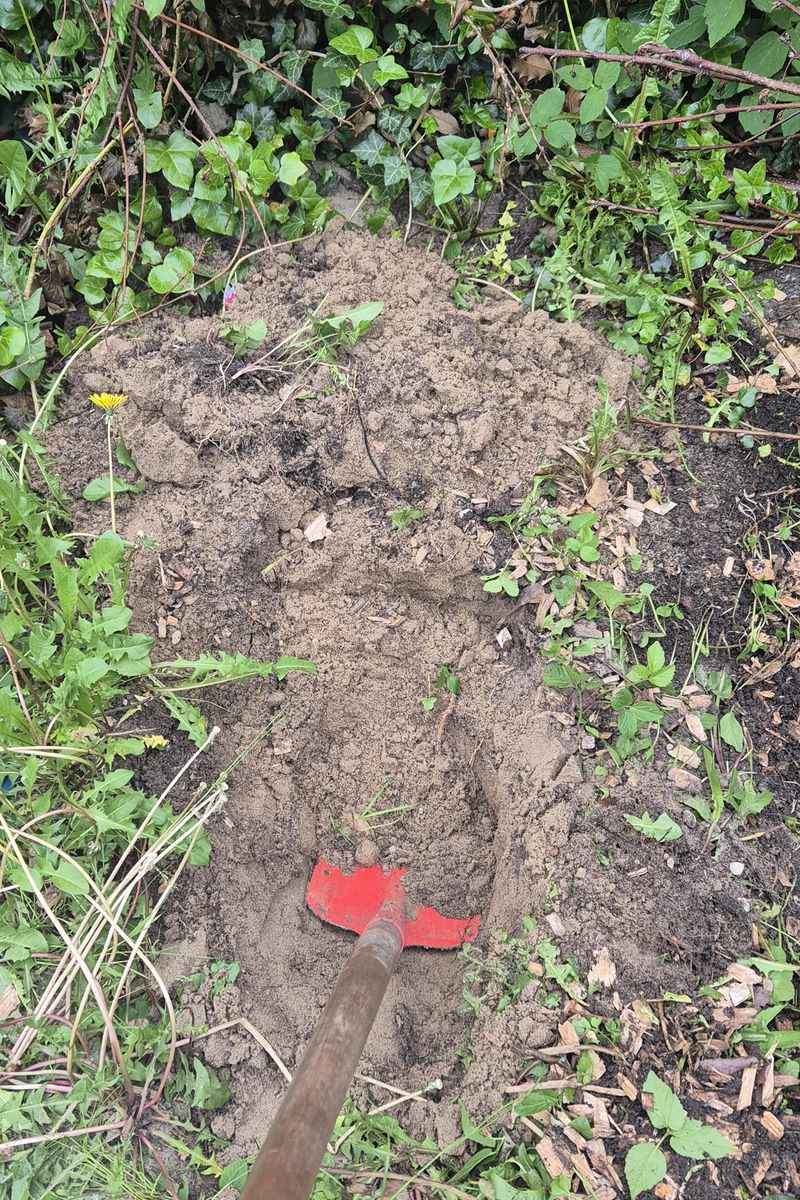
Plants growing in rich, living soil naturally resist pests and diseases. Adding compost builds soil structure and feeds beneficial microorganisms that help plants fight off problems. Healthy plants simply don’t attract as many pests.
Avoid tilling deeply, which disrupts the soil food web. Instead, add organic matter to the surface and let worms do the work. Mulching with compost or straw conserves moisture and slowly feeds your soil. Strong plants with robust root systems rarely need chemical rescues!
6. Strategic Watering
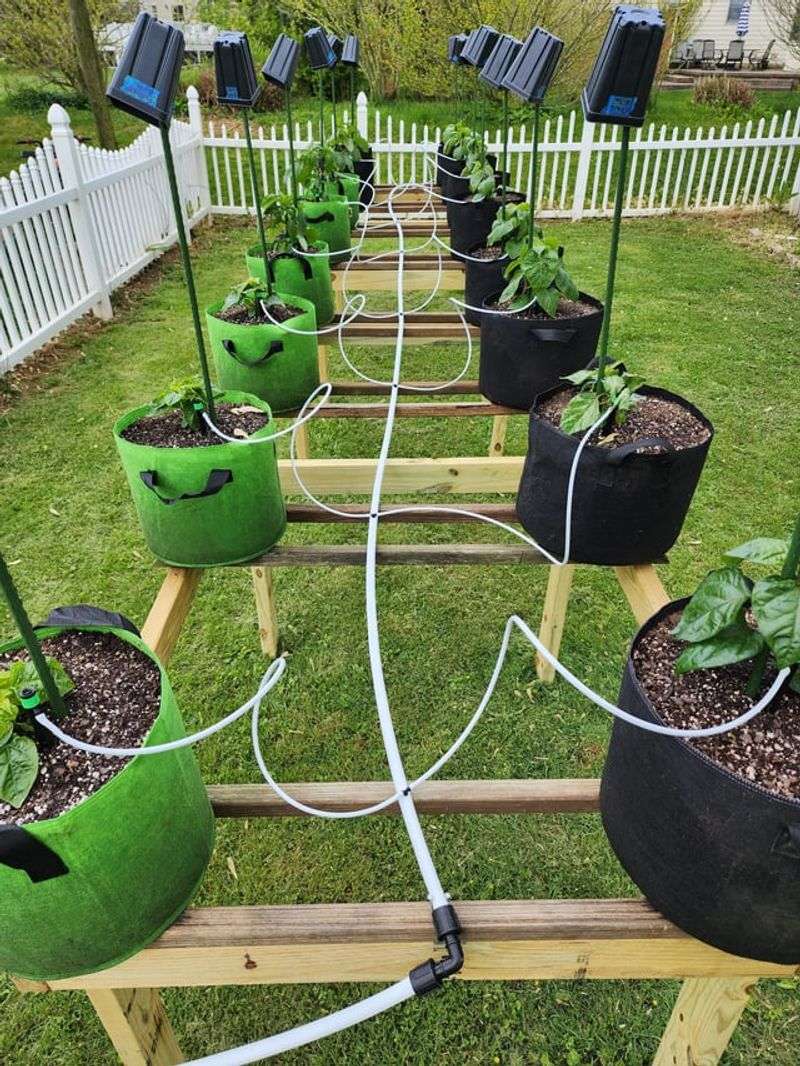
How you water matters almost as much as how much you water! Drip irrigation delivers moisture directly to roots while keeping leaves dry. Wet foliage invites fungal problems that weaken plants and make them more vulnerable to pests.
Water deeply but infrequently to encourage roots to grow downward. Early morning watering gives plants time to dry before evening, reducing disease risk. Healthy root systems and dry foliage create conditions where pests struggle to gain a foothold in your garden.
7. Trap Crops
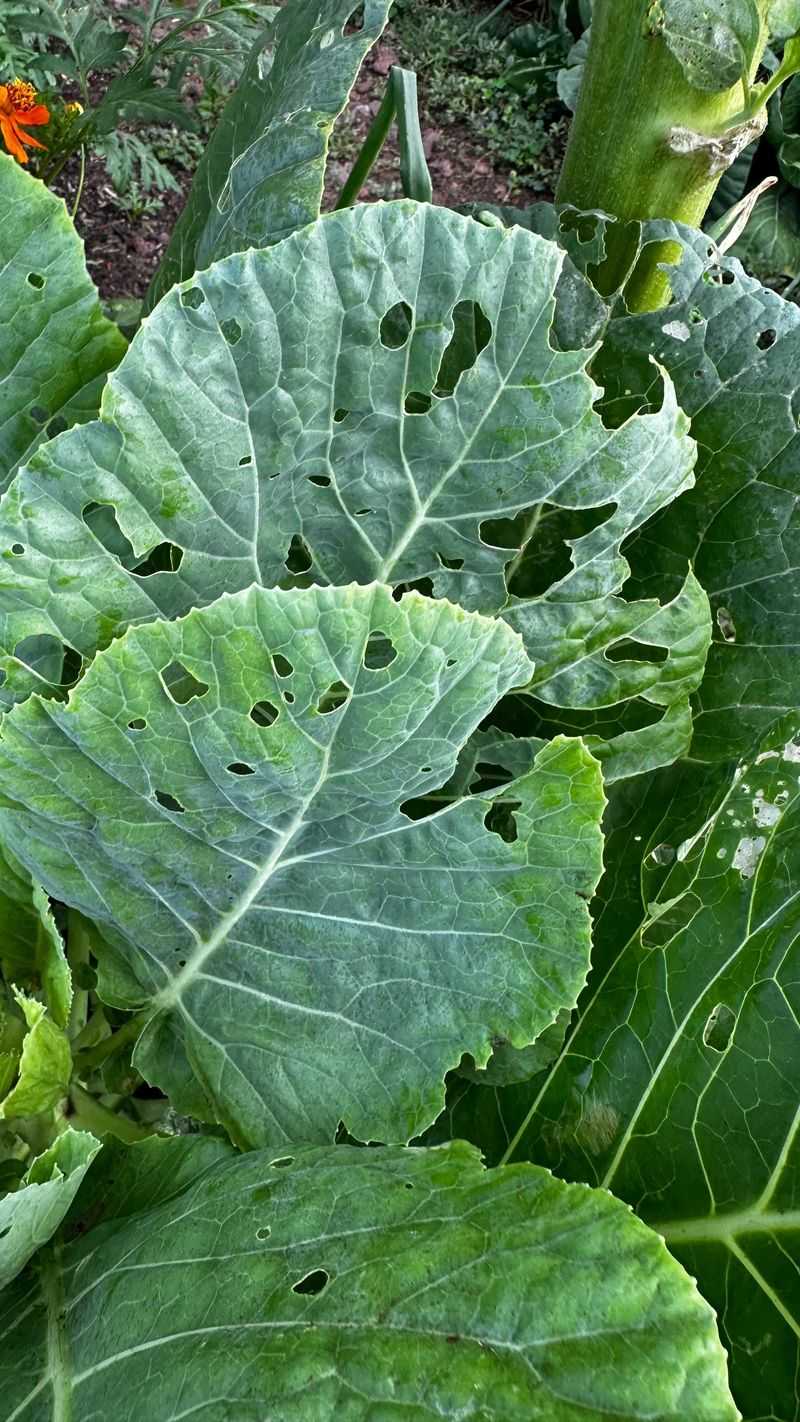
Some plants work as decoys, attracting pests away from your valuable crops. Nasturtiums lure aphids, while radishes attract flea beetles that might otherwise damage your eggplants or broccoli. These sacrificial plants take one for the team!
Plant blue hubbard squash to attract squash bugs away from your zucchini and pumpkins. Place trap crops strategically around garden borders or between rows of crops you want to protect. When pests congregate on trap crops, you can remove and dispose of them easily.
8. Timely Harvesting

Don’t give pests a chance to move in! Harvesting crops promptly when they’re ready reduces the window of opportunity for insects and diseases. Overripe produce sends chemical signals that attract pests from far and wide.
Check your garden daily during peak season and pick vegetables before they become overripe. Remove any damaged or diseased produce immediately. Regular harvesting also stimulates many plants to produce more, giving you bigger yields while naturally reducing pest problems.
9. Hand Picking
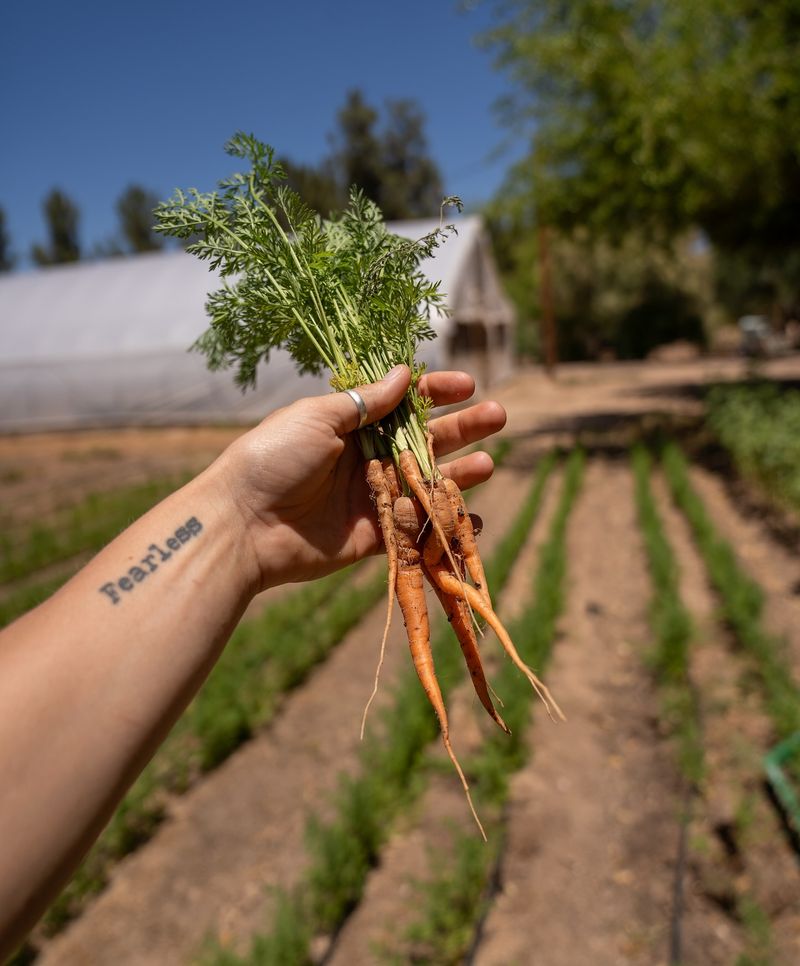
Sometimes the most effective pest control is right at your fingertips! Regularly inspecting plants and manually removing pests breaks their lifecycle before populations explode. A daily garden walk with a bucket of soapy water works wonders.
Look under leaves where insects hide and check stems for eggs. Morning is often the best time when many pests are sluggish. This hands-on approach connects you with your garden while providing immediate results. For larger gardens, enlist family members for a quick “pest patrol” after dinner.
10. Diverse Plantings
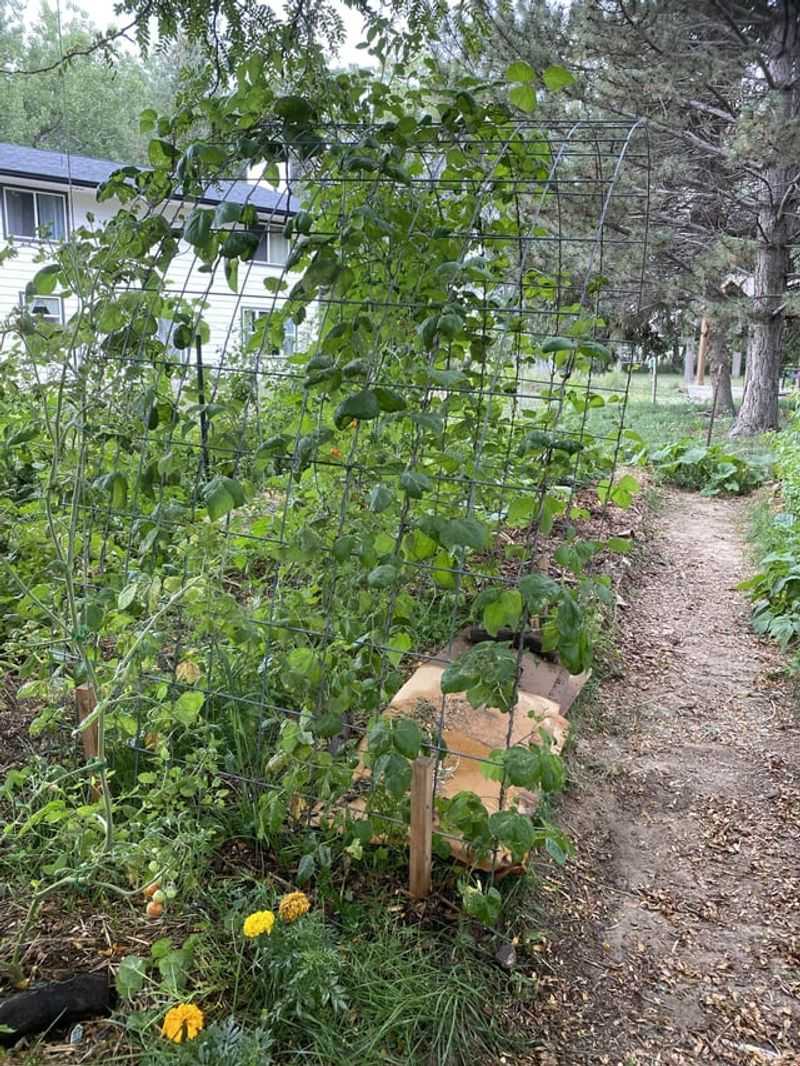
Monocultures are pest magnets! Planting many different crops together confuses insects that search for host plants by smell or sight. A mixed garden creates a balanced ecosystem where no single pest can dominate.
Intersperse flowers with vegetables and mix up plant families within beds. Include native plants that attract local beneficial insects. The diversity creates a resilient system where problems stay small and manageable. Nature thrives on variety, and your garden will too!
11. Garlic Spray
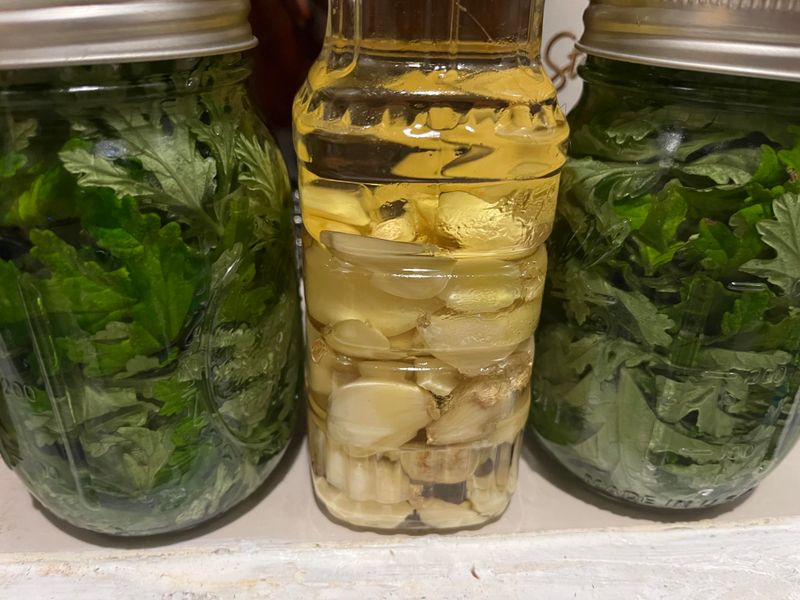
Pests hate the strong smell of garlic! Creating a simple spray from crushed garlic, water, and a tiny bit of dish soap creates a powerful repellent. The sulfur compounds in garlic disrupt insect feeding and drive away many common garden pests.
Blend 4-5 cloves with two cups of water and let it steep overnight. Strain, add a drop of soap, and spray on affected plants. Apply in evenings or cloudy days to prevent leaf burn. This spray works especially well against aphids, spider mites, and many caterpillars.
12. Neem Oil
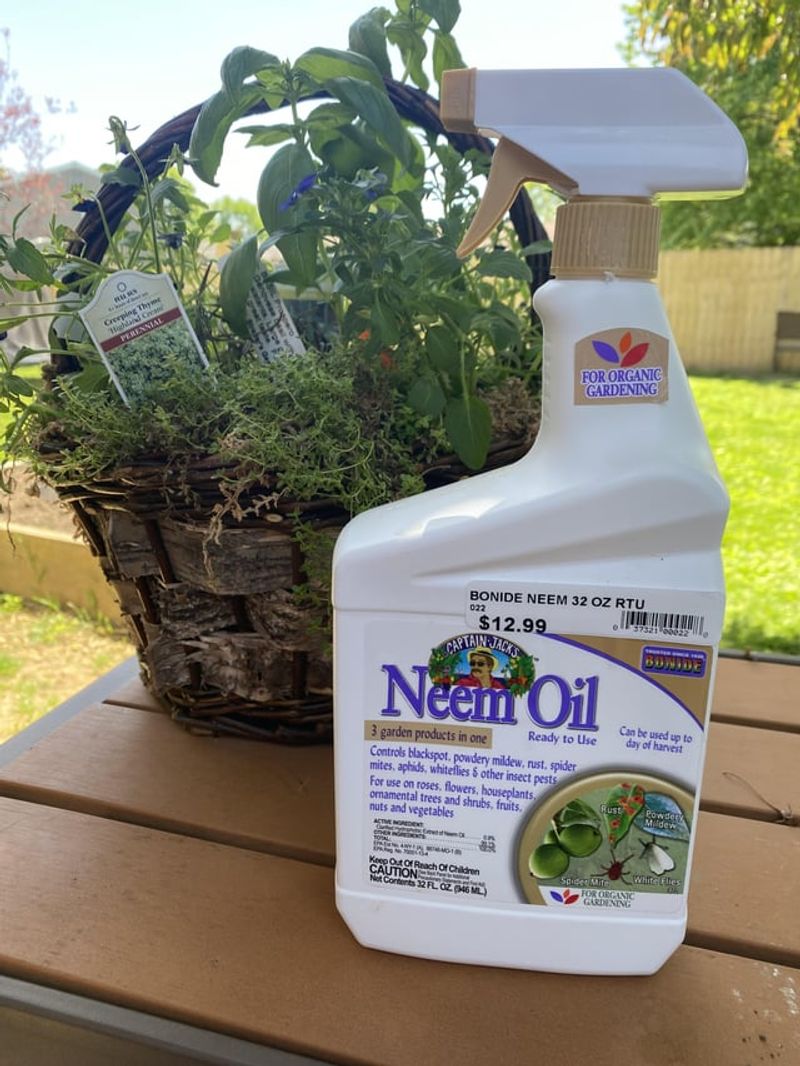
Extracted from neem tree seeds, this natural oil disrupts insect hormones and feeding patterns without harming beneficial bugs. It works on over 200 species of pests yet breaks down quickly, leaving no harmful residues.
Mix 1-2 teaspoons with a quart of water and a drop of mild soap. Apply to affected plants in the evening when beneficial insects are less active. Neem works best as a preventative measure or when pest problems are just beginning.
13. Diatomaceous Earth
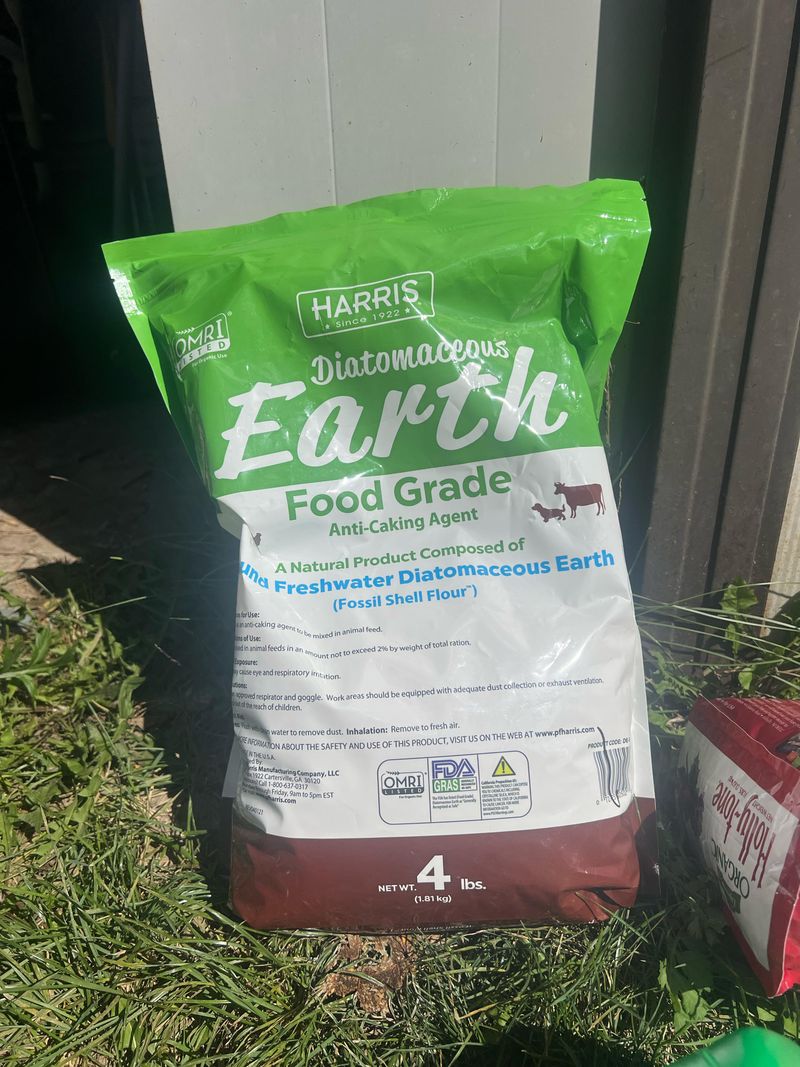
This powder looks harmless to us but feels like broken glass to soft-bodied insects! Made from fossilized algae, diatomaceous earth cuts through insect exoskeletons, causing them to dehydrate. It’s completely non-toxic to humans and pets.
Sprinkle a light dusting around plants or directly on pests. Apply when dry for best results, and reapply after rain. This natural substance works great against slugs, snails, ants, and many crawling insects. Use food-grade DE for garden applications to ensure safety.
14. Insecticidal Soap
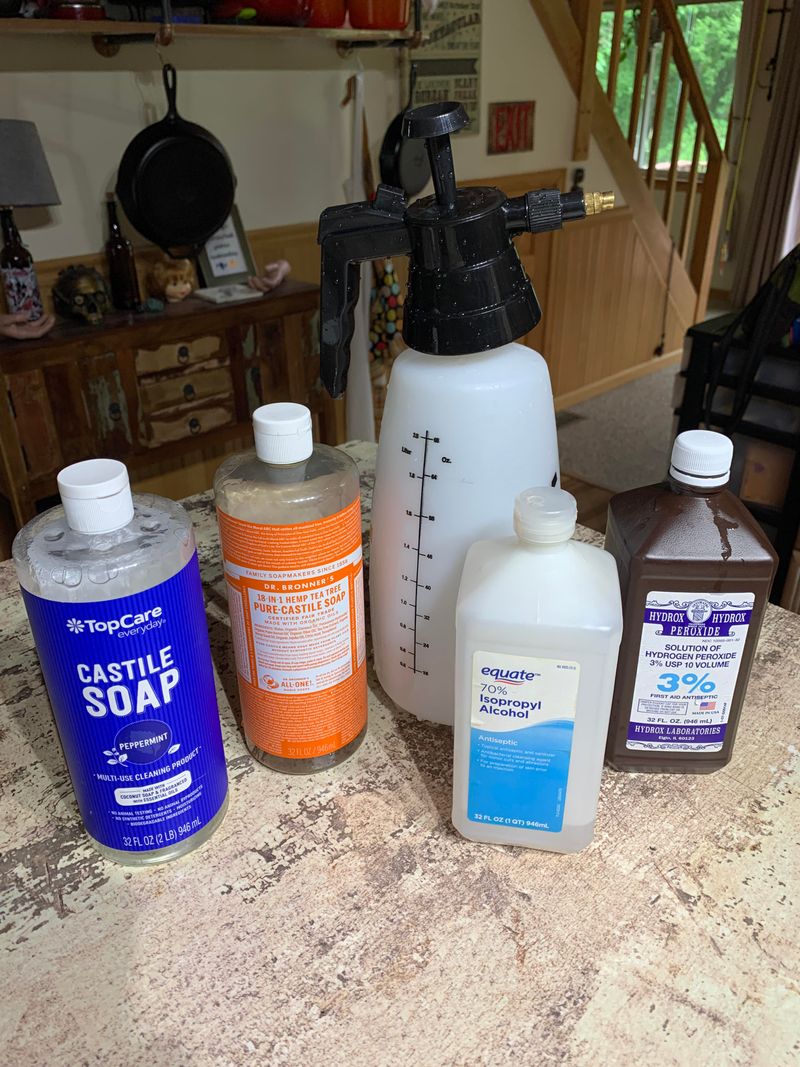
Gentle on plants but tough on bugs! Insecticidal soaps break down the protective outer layer of soft-bodied insects like aphids and mites. They work on contact but leave no harmful residue behind.
Make your own by mixing 1 tablespoon of pure liquid castile soap with a quart of water. Spray directly on pests, making sure to coat them thoroughly. These soaps are biodegradable and safe for most plants. Test on a few leaves first if you’re worried about sensitive plants.
15. Bacillus Thuringiensis
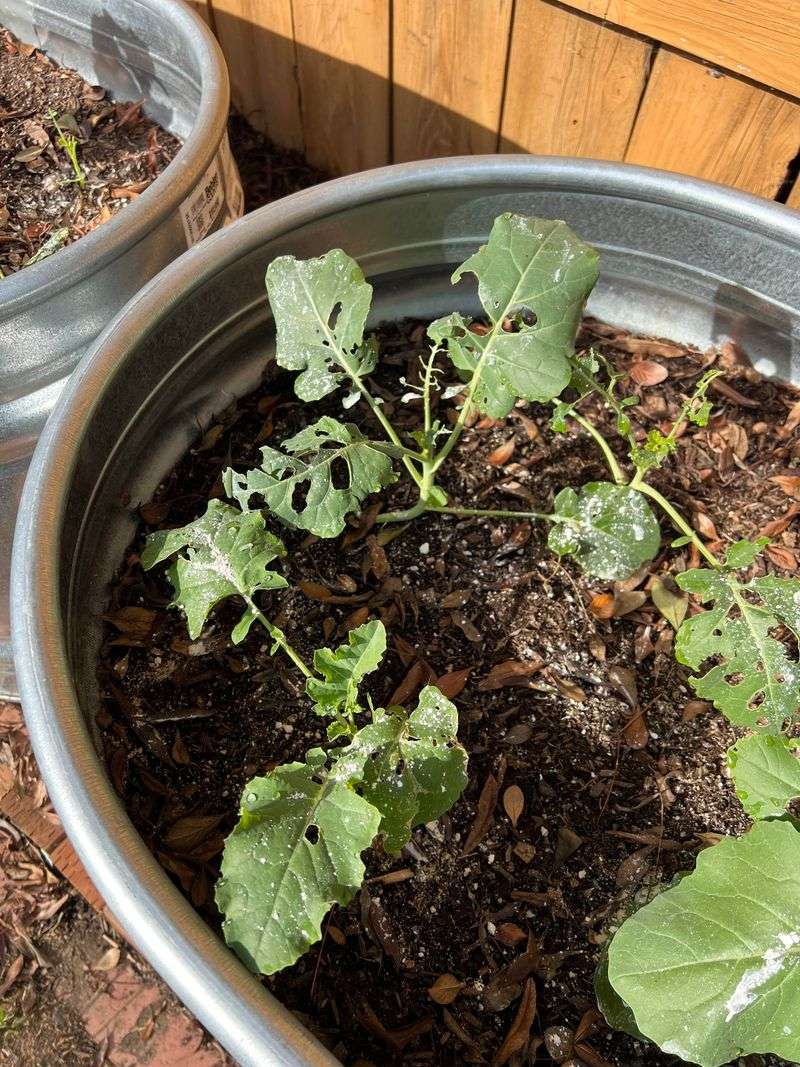
This natural soil bacterium is a caterpillar’s worst nightmare! Commonly called Bt, it produces proteins that paralyze the digestive systems of caterpillars but doesn’t harm other insects, animals, or humans. It’s perfect for controlling cabbage worms and tomato hornworms.
Mix the powder form with water according to package directions and spray on affected plants. Apply in the evening since sunlight breaks down Bt quickly. This targeted approach preserves beneficial insects while stopping specific pests in their tracks.

